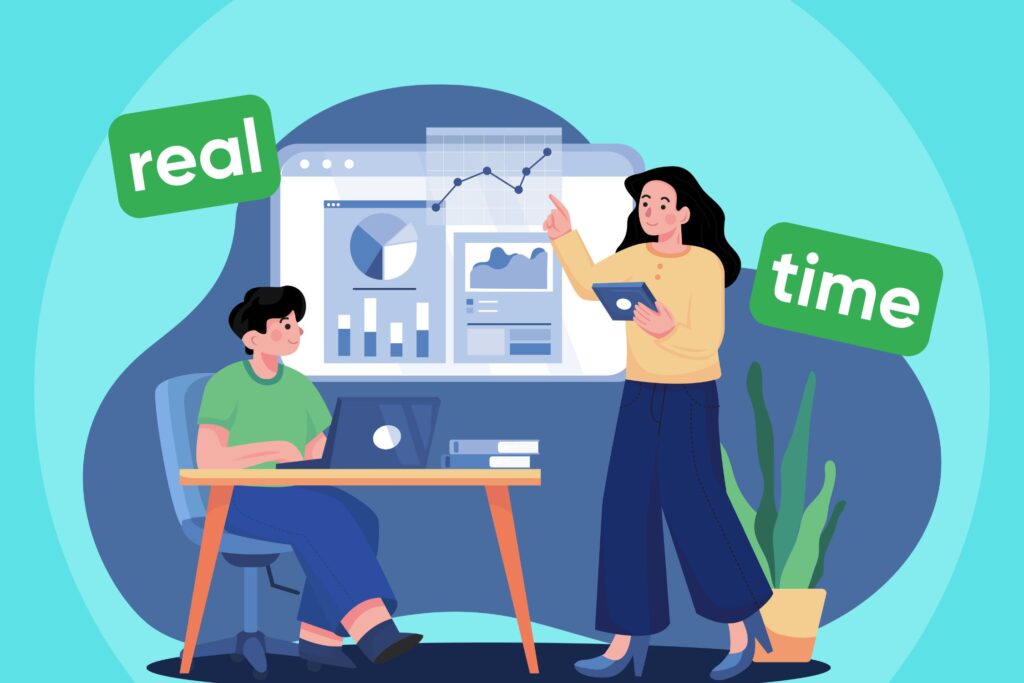How ERP Helps to Avoid Cash Gaps and Optimize Financial Flows

Cash flow problems can take down a business faster than a lack of sales. You might be making solid revenue, but if your payments are delayed and expenses pile up, things can get messy fast. That’s where an ERP system comes in—not just as a tool to organize your business but as a real financial safety net. Let’s break down how it helps you avoid cash gaps and keep your money moving smoothly.
The Root of Cash Gaps and How ERP Fixes Them
A cash gap happens when you don’t have enough money on hand to cover your expenses at a given moment. Even profitable businesses struggle with this when financial management isn’t airtight. Some common causes include late client payments, poor tracking of outgoing costs, uncoordinated budgeting, and slow invoicing. Sound familiar? The good news is these issues aren’t impossible to fix—especially with an ERP system in place.
One of the biggest advantages of an ERP system is the real-time financial oversight it provides. Forget the days of waiting for monthly reports—now, you can track your cash flow as it happens. With a clear snapshot of your income and expenses at any moment, you can tackle potential shortfalls before they become real problems. For example, ERP solutions for managing IT business provide a clear picture of transactions, so IT companies can anticipate shortfalls before they become a problem. When every department has access to real-time data, you can react faster and make smarter financial decisions.
If you’re still handling invoices manually, you’re probably leaving money on the table. Late payments are one of the biggest reasons businesses run into cash gaps. An ERP system automates the entire invoicing process, reducing human error and ensuring payments go out (and come in) on time. Need to remind a client about an overdue payment? ERP systems can send automatic reminders, so you don’t have to chase them down yourself. Some systems even integrate directly with banks, so you can see exactly when payments hit your account.
Smarter Budgeting, Cost Control, and Vendor Management
Flying blind when it comes to budgeting? That’s a recipe for financial stress. A good ERP system helps you forecast future cash flow based on past trends and current data. That way, you can prepare for upcoming expenses and avoid last-minute financial scrambles. For businesses with unpredictable revenue cycles—like IT services—having an ERP that tracks financial trends can make a huge difference. Features like project and budget management software help set realistic financial goals and keep spending in check.
Without a clear financial overview, small unnecessary expenses can add up fast. ERP systems help you analyze spending patterns, so you can spot (and cut) wasteful costs. A common example? Many companies pay for multiple software tools that do the same thing. A good ERP consolidates those tools into one system, saving money and streamlining operations. Automated procurement tracking also keeps you from overspending on supplies you don’t actually need.
Here’s how an ERP system helps optimize budgeting and reduce costs:
- Tracks real-time financial data to prevent overspending
- Automates expense approvals and budget adjustments
- Identifies unnecessary expenditures and eliminates them
- Helps negotiate better vendor contracts by analyzing past purchases
Late payments to vendors can hurt your business relationships—and your ability to negotiate good deals. An ERP system tracks due dates and sends reminders to ensure suppliers get paid on time. That means no late fees and better long-term partnerships. For industries like manufacturing or logistics, ERP systems align purchase orders with inventory levels. ERP system for logistics ensures that supply chain costs are well-managed, preventing overstocking or running out of key materials. That way, you avoid unnecessary expenses and keep things running smoothly.
Keeping Teams Aligned and Relying Less on Credit
One big reason businesses run into cash flow problems? Departments aren’t communicating. Sales teams might close deals without knowing when payments will actually come in. The finance team might approve expenses without considering cash reserves. It’s a mess. ERP systems integrate financial data across all departments, so everyone is working with the same real-time information. If a big sale is made, finance can see the expected revenue and adjust budgets before spending money they don’t have yet.
Many businesses fall into the habit of using credit to cover cash gaps—but that leads to unnecessary interest payments and financial strain. ERP systems help businesses plan ahead so they can rely more on their own cash flow instead of emergency loans. With ERP and forecast resource management, companies can project cash flow needs more accurately, reducing the risk of last-minute borrowing. And when a loan is necessary, businesses with a strong financial plan in place can negotiate better terms.
To make sure your business doesn’t rely too much on credit, an ERP system helps by:
- Predicting upcoming cash flow needs with data-driven forecasting
- Reducing late payments from clients through automated reminders
- Optimizing budget allocation to ensure necessary expenses are covered first
- Minimizing financial risks with better vendor and supplier coordination
The Bottom Line: Stronger Financial Stability with ERP
Avoiding cash gaps isn’t just about making more money—it’s about managing the money you already have better. A solid ERP system helps you track income, cut unnecessary costs, automate payments, and plan for the future.
For IT companies, marketing agencies, manufacturers, and service providers, ERP is more than just an efficiency tool—it’s a financial lifeline. By integrating real-time financial tracking, automation, and forecasting, you can optimize cash flow, avoid financial bottlenecks, and keep your business on solid ground.
Investing in an ERP isn’t just about making operations smoother. It’s about staying ahead of financial problems before they happen. No matter your industry, having the right ERP system in place ensures you’re always prepared for whatever comes next.
you achieve your goals!






